News feed
Nobel Prize-winning designer of molecular machines at BME
2024. 06. 05.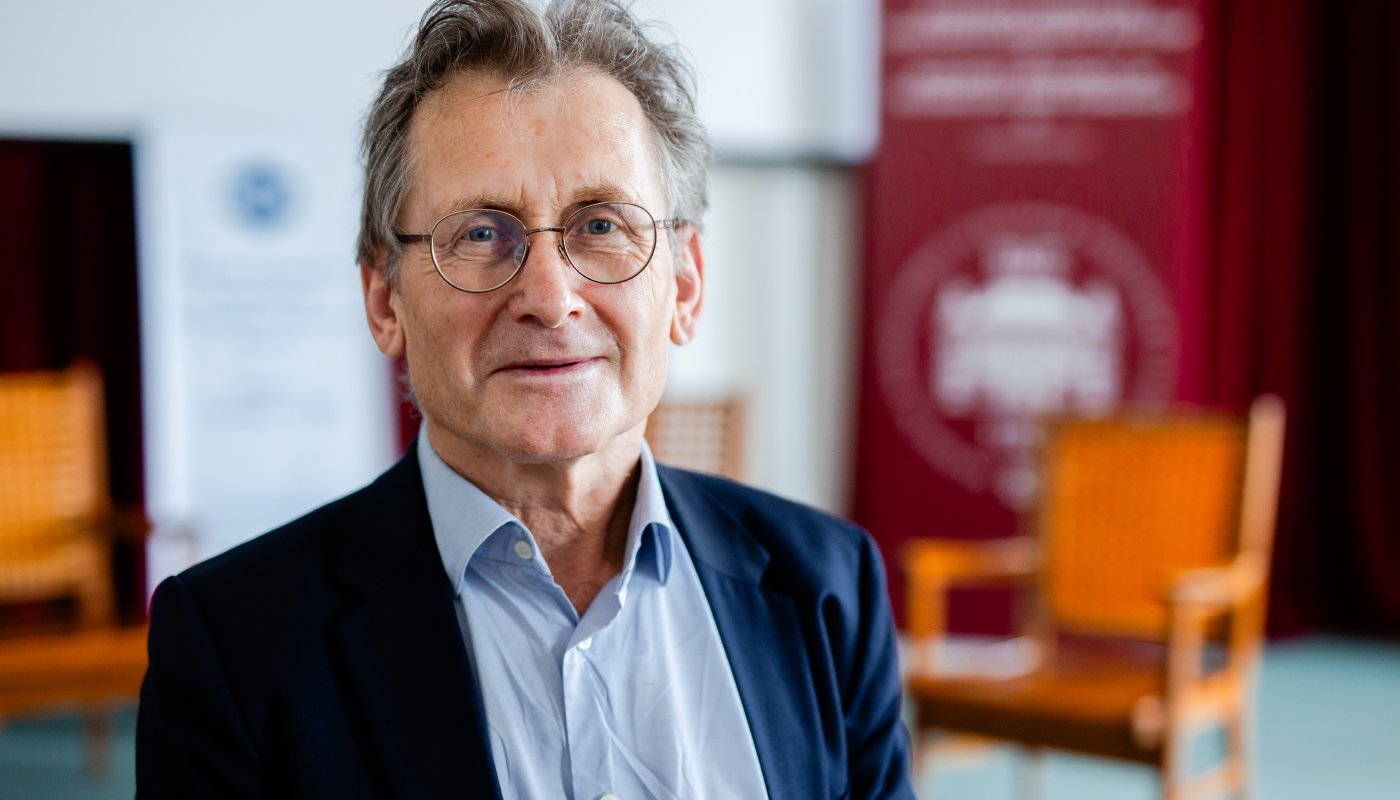
Bernard L. Feringa answered questions from students at Budapest University of Technology and Economics. The world-famous chemist's team also included a researcher from BME.
Ben Feringa was awarded the Nobel Prize in Chemistry in 2016 for the design and synthesis of molecular machines, sharing the prize with researchers Sir J. Fraser Stoddart and Jean-Pierre Sauvage. Professor Feringa was the first to construct a molecular motor by making a molecular rotor blade continuously spin in the same direction. Using molecular motors, he has rotated a glass cylinder that is 10,000 times bigger than the motor. He is also credited with the creation of the so-called “nanocar”.
The Nobel Prize-winning chemist took part in a roundtable discussion at Budapest University of Technology and Economics on 16 May 2024 in the K building’s auditorium, where he spoke about his research and the defining moments of his scientific career to an audience of over 200 people.
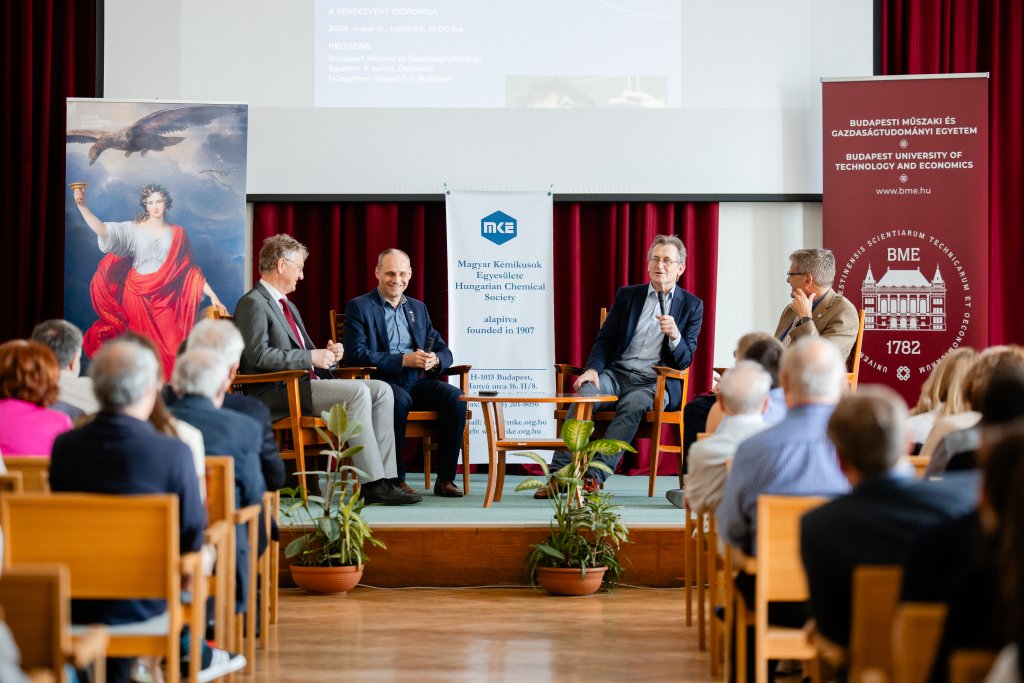
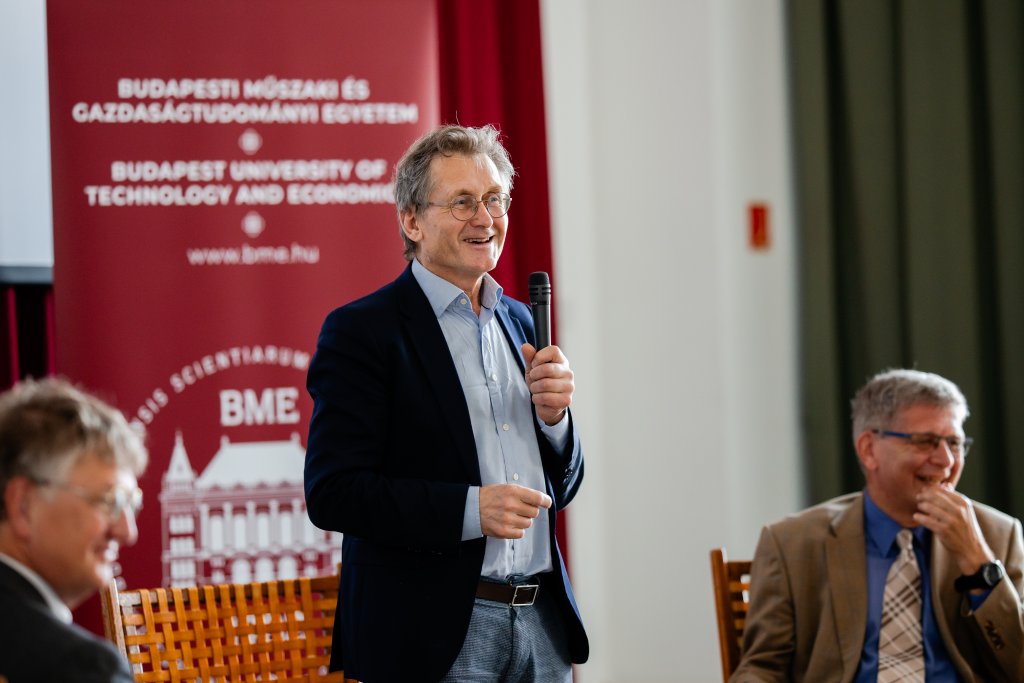
The event was jointly organised by the Section of Chemical Sciences of the Hungarian Academy of Sciences, BME’s Faculty of Chemical Technology and Biotechnology (BME VBK) and the Hungarian Chemical Society. The discussion was moderated by Gábor Lente, editor-in-chief of the Journal of the Hungarian Chemical Society. At the end of the roundtable discussion, Ben Feringa pointed to the young people in the audience who he believes will invent the future and encouraged them to follow their dreams. The Nobel laureate described chemistry as a central discipline that is connected to everything in our lives, and key to laying the foundations for the industry of the future, which can be greener, using less energy and building on recycling, thanks to chemistry. (The press event and roundtable discussion, held at Budapest University of Technology and Economics was covered in detail in the Qubit scientific news portal and the science sections of Telex and 24.hu – ed.)

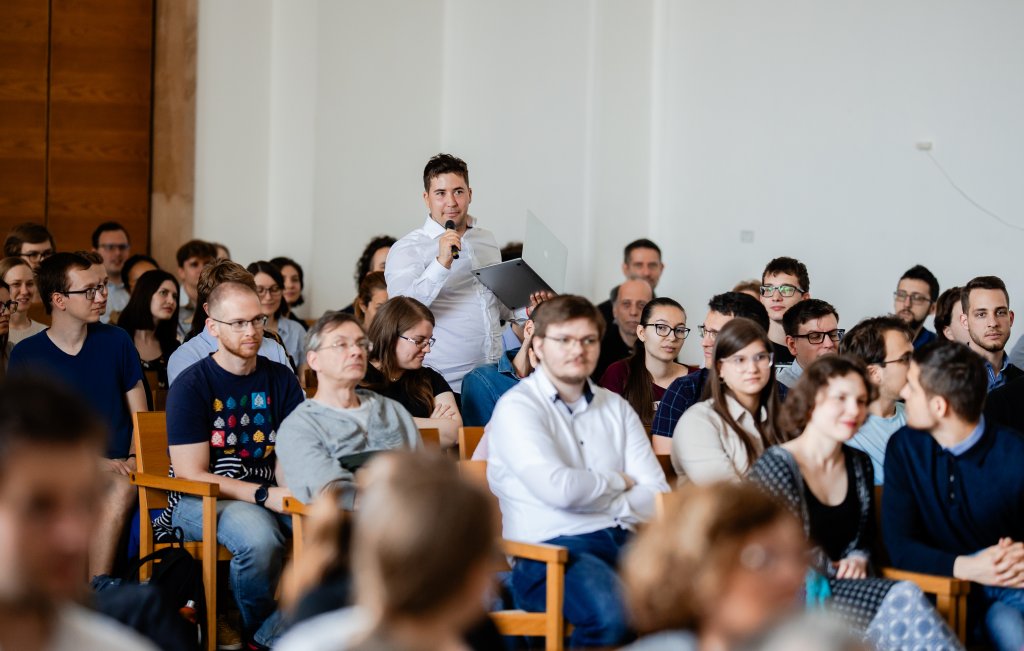
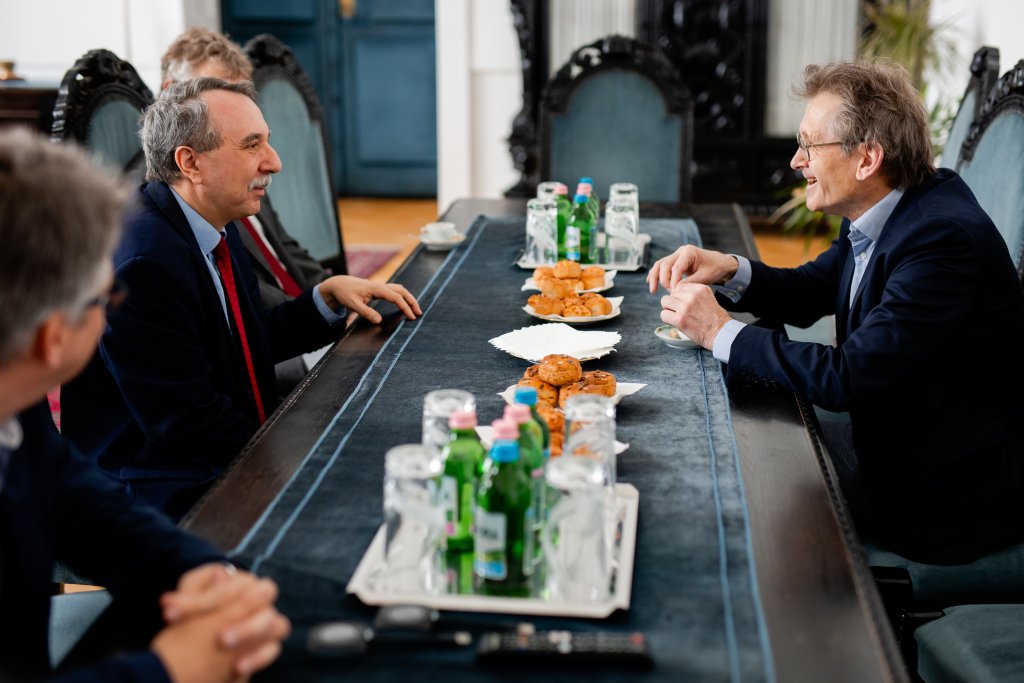
Prior to the public discussion, Professor Feringa met Tibor Czigány, BME’s Rector, András Szarka, Dean of the Faculty of Chemical Technology and Biotechnology, László Nyulászy and Tamás László Mika, professors of the faculty.
The Faculty of Chemical Technology and Biotechnology at BME has a long-standing relationship with Ben Feringa, in the framework of which a doctoral student conducted research in the Nobel laureate chemist’s laboratory. Professor László Tamás Mika, Head of the Catalysis Laboratory and Head of the Department of Chemical and Environmental Process Engineering at BME VBK, told bme.hu that “the common ground is not the world of molecular motors, but the development of catalysts with high activity and selectivity, which can be used to produce valuable chemical feedstocks and intermediates from biomass-based waste. On this topic, following a successful scientific students' association paper and thesis in my group, my outstanding student Bálint Fridrich started his PhD studies at the University of Groningen, prior to which he studied at the University of Rostock. After graduating, he first worked with Matthias Beller, an internationally renowned researcher in homogeneous catalysis, and from there he successfully applied to the University of Groningen, where he also studied biomass utilisation. In addition to a mutual acquaintance, Professor Katalin Barta, Professor Feringa was also involved in supervising his doctoral research.”
Prior to the 16 May roundtable discussion, another Nobel laureate, a former student of the university, Ferenc Krausz, gave a lecture Budapest University of Technology and Economics on 11 May.
Rector's Office Department of Communications
Photo: B. Geberle
